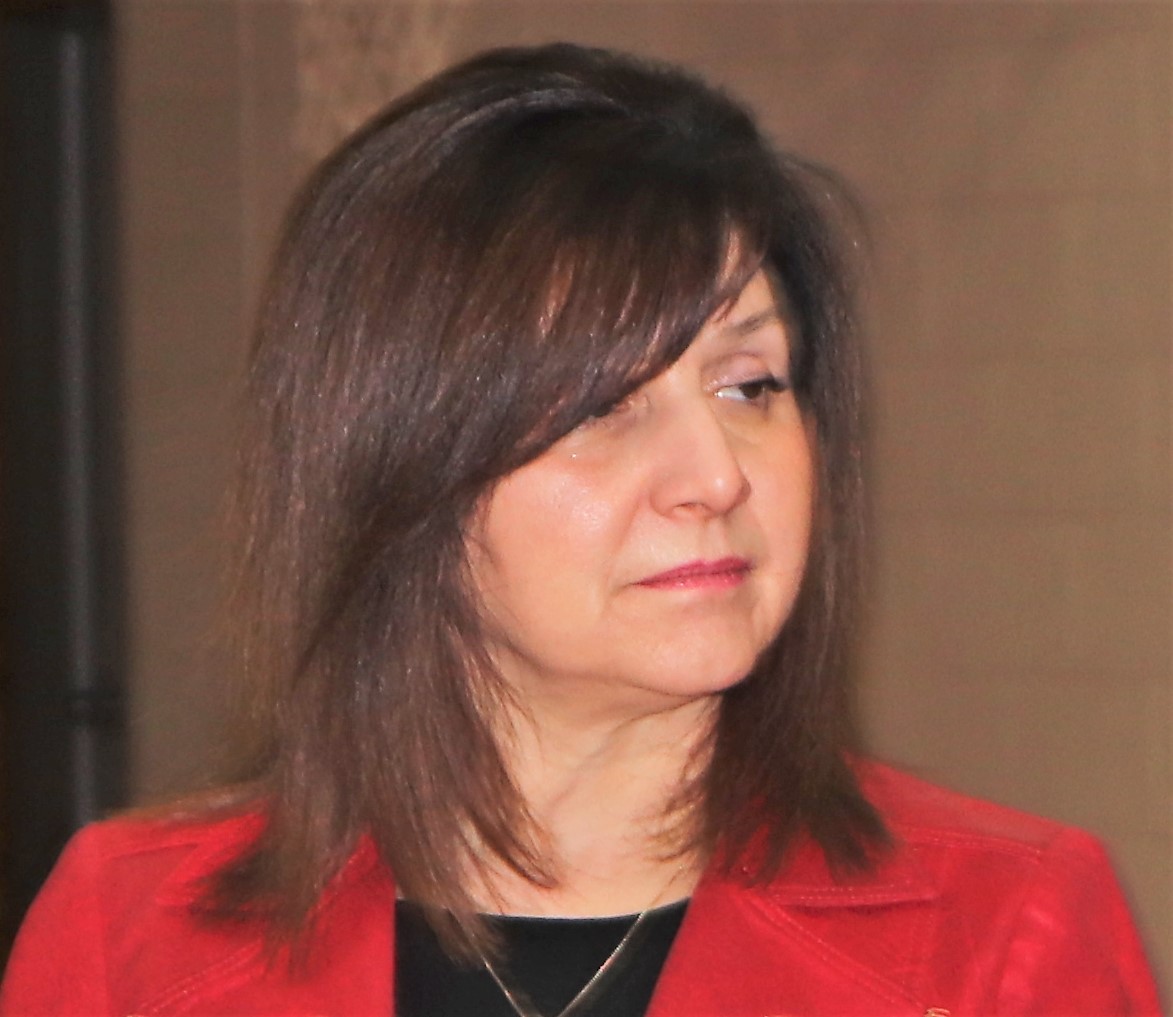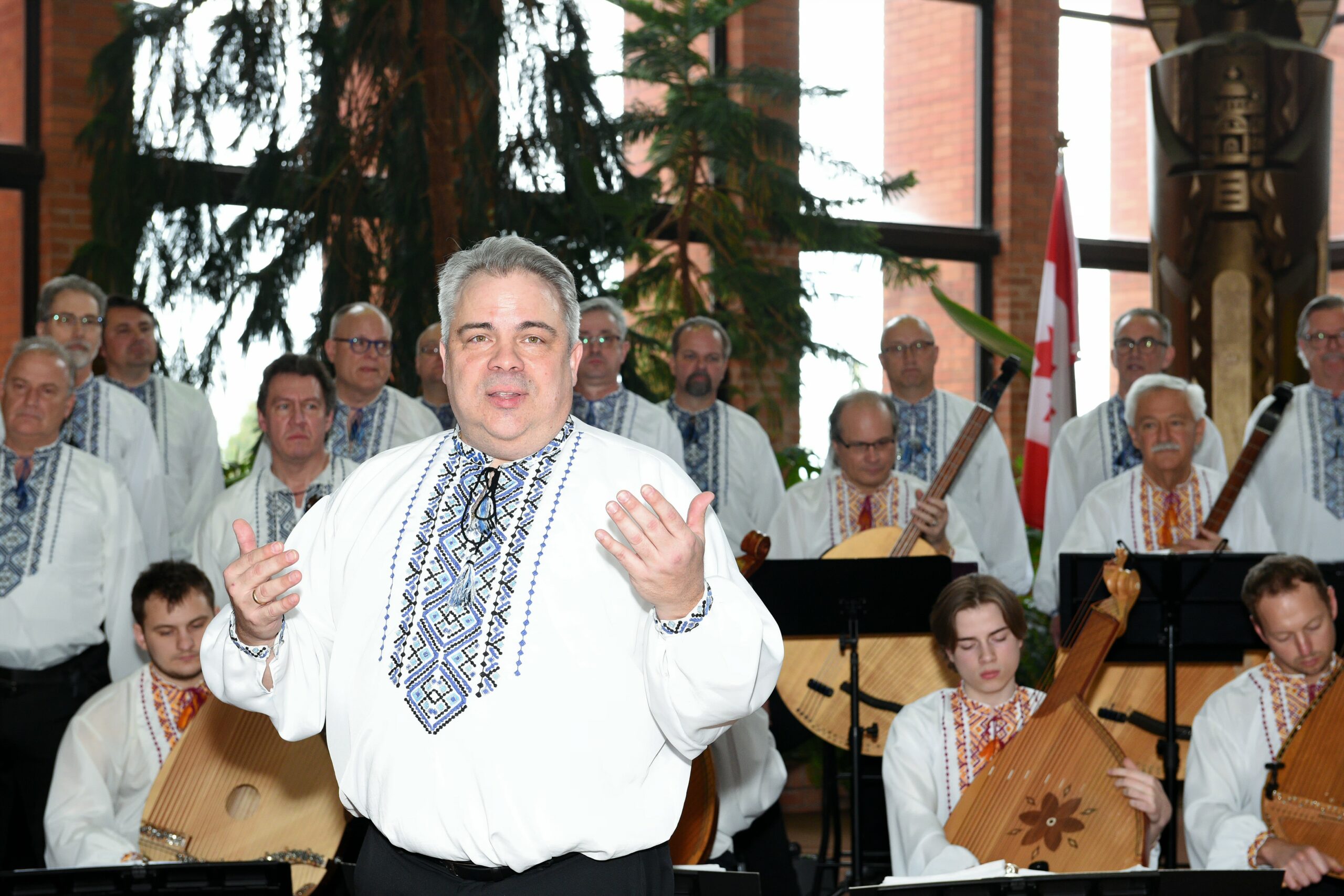New Pathway.
On November 12, 2016, at the Ukrainian Canadian Professional and Business Association’s networking event within the Ukrainians in IT series, we met with many talented members of the Ukrainian community. Among them was Alexander Fesiak, a Global Account Manager with a US-based chipmaker Freescale Semiconductor, Inc. Alexander has been in the semiconductor industry for over 25 years working with such companies as BlackBerry, Siemens, GE and Honeywell, to name a few. His primary role at Freescale is technical sales, he works with customer engineering teams during their product design and supports them on selecting the right semiconductor devices and technologies for their projects.
In his presentation during the event, Alexander talked about the progress of computer hardware and software, and painted a comprehensive picture of the Internet of Things, a computer network of tomorrow which should connect many everyday objects and change our lives even further. We had a chance to talk to Alexander to get a better understanding of the current technological progress and where it is leading the humankind.
We pointed out that only about 20 years ago, when Pentium II reached the market, many people could not imagine that computers can get better than that. Alexander Fesiak said that the performance of microprocessors doubles every couple of years. This observation is known as Moore’s Law. Today’s computers use 14 nanometer technologies, the performance of which exceeds that of Pentium II by more than 5000%. (The chart above shows the amount of transistors in some of the key microprocessors Intel & Motorola across the years).
In this respect, how far are we from forging Artificial Intelligence (AI)? Alexander Fesiak explained that AI is a combination of software algorithms and microprocessor performance. We are moving closer to achieving AI as there are already examples of rudimentary AI in many devices including smartphones. We can speak into our phone and it digitizes the voice, sends the signal up to the cloud, which deciphers the command, then sends it back and the phone then understands what we are asking it. This is done very quickly because the servers used have the latest microprocessors with the latest memory. Alexander Fesiak believes that very soon the speed of communication between the cellphone and the cloud will increase even further. At the same time, we are still “years away” from more advanced technology, a full-blown AI, such as a robot from a recently released movie Ex Machina. Although this movie shows the desire of humanity to possess AI, a computer which has the level of performance, which enables it to think for itself, is many years ahead. However, Alexander Fesiak believes that the humanity needs to think now what we are going to do with AI, not to run into problems shown in the film.
We asked Alexander Fesiak about self-driving cars and when they will be available on an industrial scale. Alexander Fesiak said that they are available now – there are videos in YouTube of Audi, Tesla and other self-driving cars which can drive, find parking spots and park themselves. Vision systems including cameras and radars to judge the distance between the cars, and connection to the cloud are available today. But for self-driving vehicles to be used in big numbers, there needs to be an improved system of vehicle-to-vehicle communication: vehicles need to know where everyone around them is, thus there has to be a lot of data tossed from one to another at a very high speed. Alexander Fesiak says that if cellphone communication takes milliseconds to forward a signal from one cellphone to the cloud to the other cellphone, autonomous-driving cars need microseconds to forward that information to be able to drive safely and efficiently. Currently, there is a wireless system standard being developed (DSRC – dedicated short-range communications), with a new frequency band, 5.9GHz, already carved out for it. This new wireless standard is very precise, it can handle a lot of data and it reacts very quickly. Alexander Fesiak believes that once there are all the components, self-driving cars will be available to the public, which should happen by 2020.
We also asked Alexander Fesiak if the concerns are grounded that the Internet of Things, which is going to encompass many everyday items, will become the “big brother” that controls everything. Alexander noted that there have been connected devices for many years, but with the growth of the power of the processors the devices nowadays can be manipulated from smartphones. It is one thing to develop rules that would prevent computerised systems to harm humans. But the Internet of Things is prone to the existing problem of software security. The same kind of security concerns apply to industrial-type users, which are connected to the Internet, such as companies that control the power generation and distribution (as in the case of the recent hacker attack on the Ukrainian electricity distribution company Prykarpattiaoblenergo).
Alexander Fesiak also noted that there is a way to break into any device with sophisticated techniques and that hardware security is as important as the software security. It is thus important to create a high level of security to reduce the number of individuals that would even attempt to interfere with hardware. Manufacturers, such as Alexander Fesiak’s Freescale Semiconductor, put safeguards to protect the chips from being physically removed from the product or manipulated in any other way. But the task to create secure hardware and software becomes more challenging as hackers become better at what they do.
After finding about Alexander Fesiak’s skills and achievements in the IT industry, it may or may not be surprising to find that he is also an accomplished musician. Alexander is the leader of a well-known in the community Dunai band (www.dunai.com). He is a talented accordion player and has applied his technical and technology skills in designing his own accordion which he had custom-built by an accordion company in Italy.
Ron Cahute of Burya testifies: “He’s come over to my studio to record and the man is completely computerized. He’s probably got the most knowledge of the electronic instruments of anyone I know. He knows not only how to use the instrument, but how it works. I don’t care how it works, as long as it does what I want. But he knows how it works and by that he is able to change things. He does the musical side of things and writes music and does it all, but his skills also help the facilitation of the music which makes it a lot easier than what it used to be. And there are a lot more things that you can do. Alexander is incredibly knowledgeable, and every program that comes out – he has it. If he did music for a living – that would be incredible.”
We believe that such multitalented people as Alexander Fesiak, which are not scarce among the Ukrainian Canadians, should be known and celebrated in the community.
Share on Social Media




































